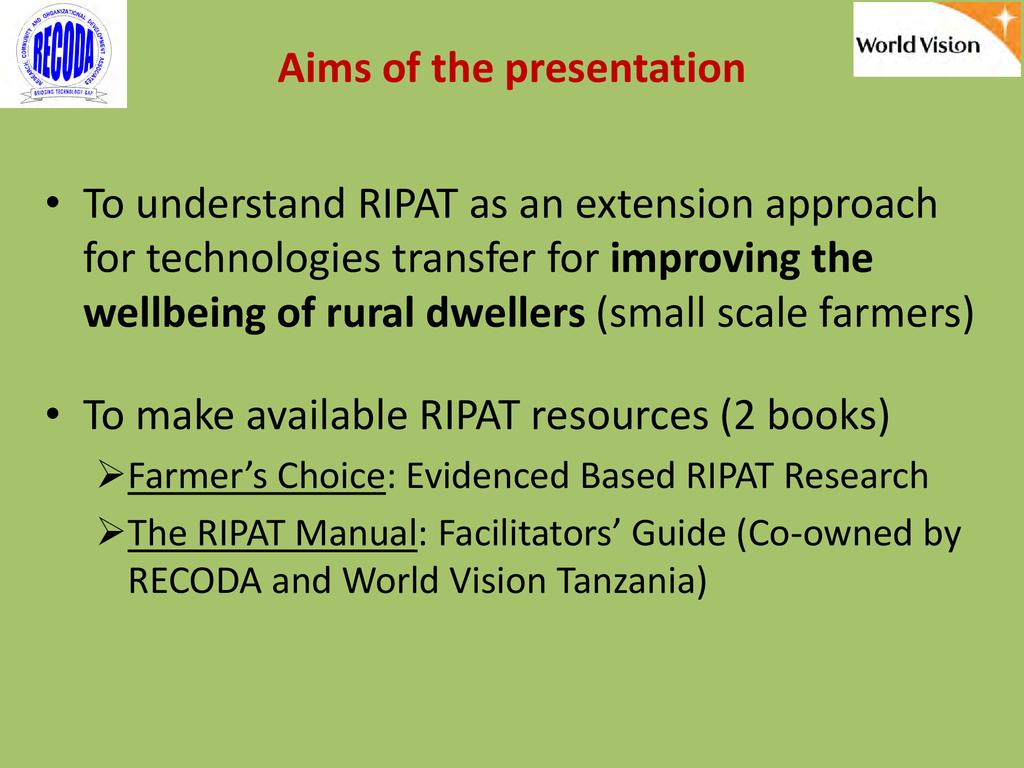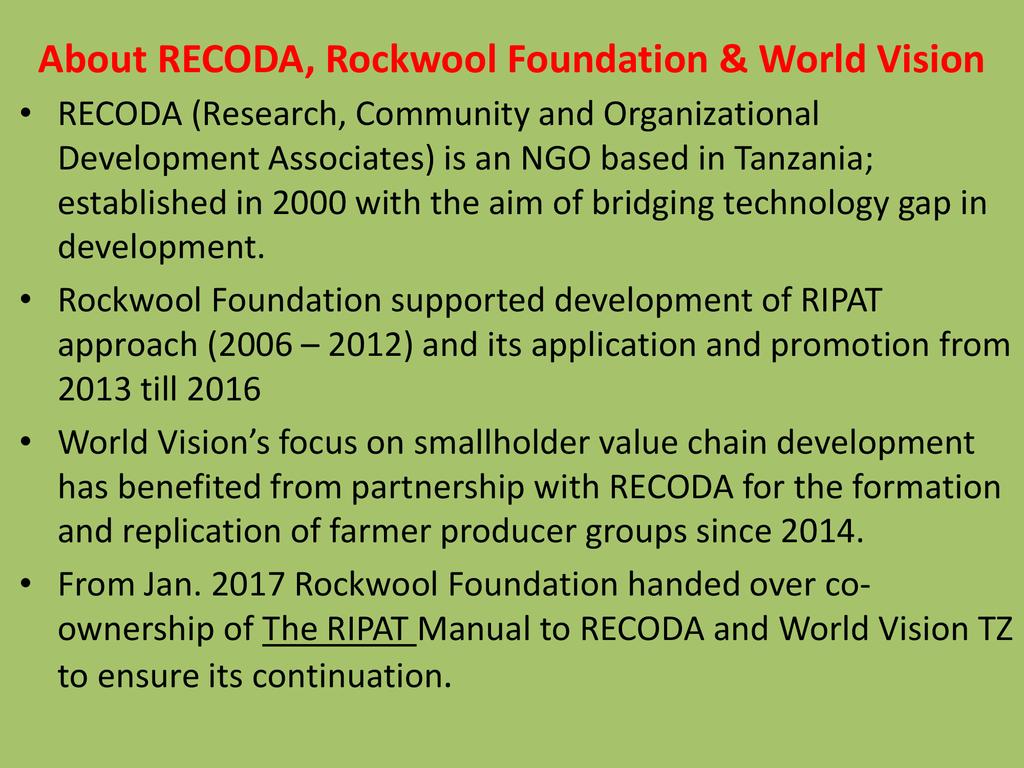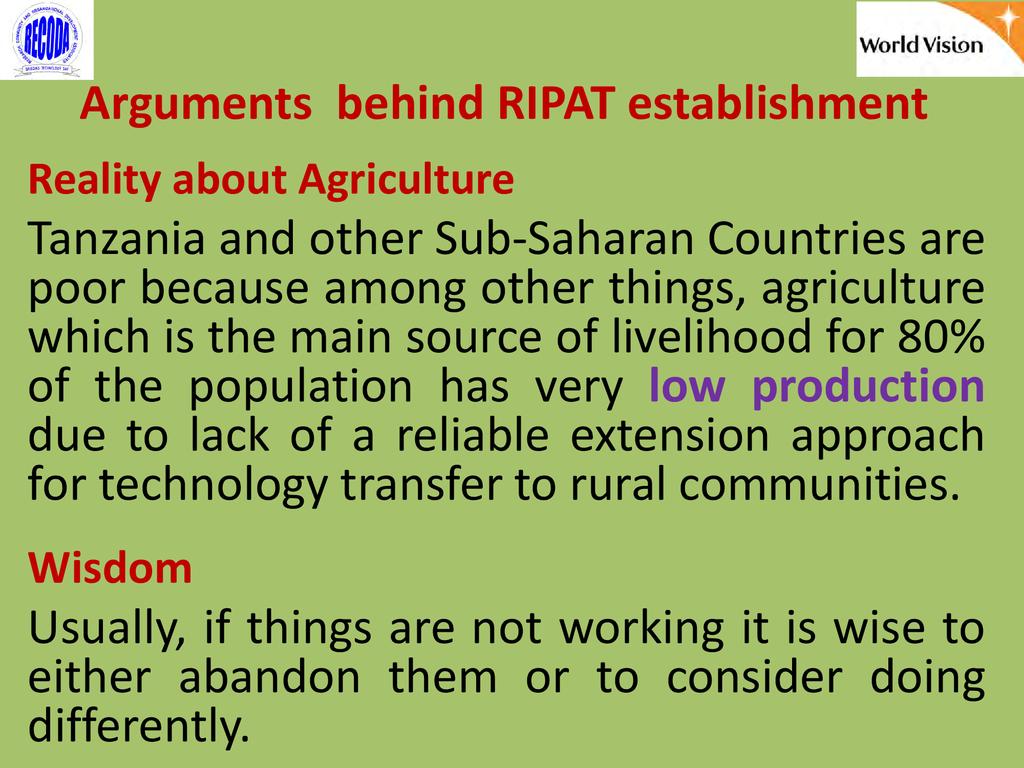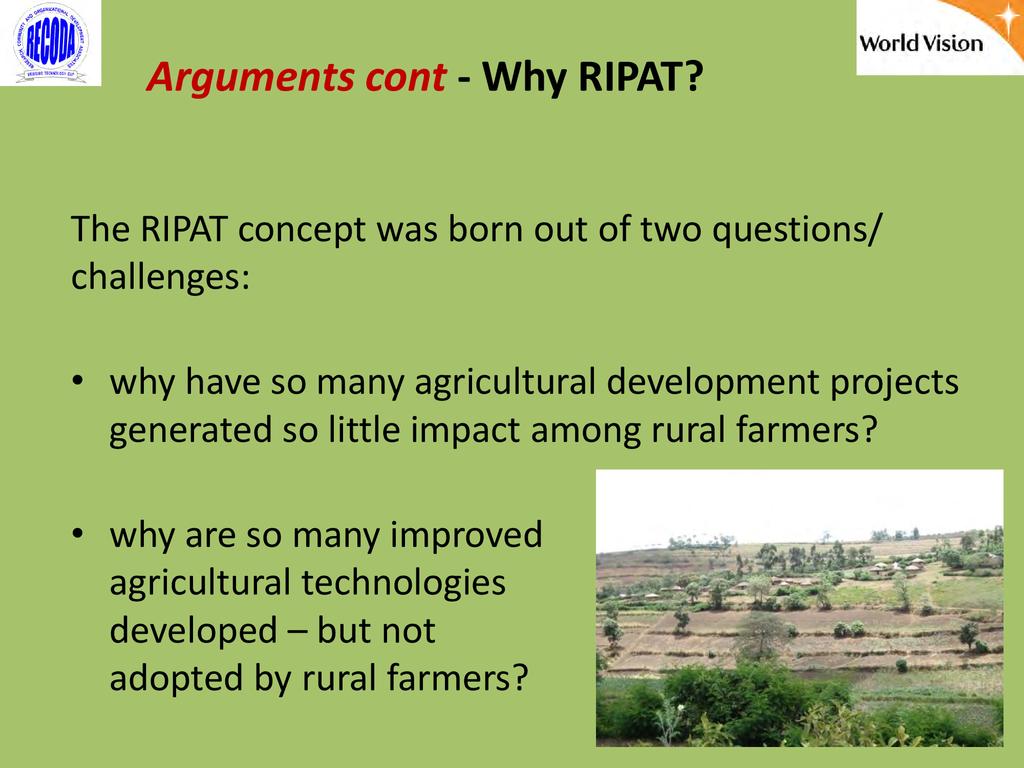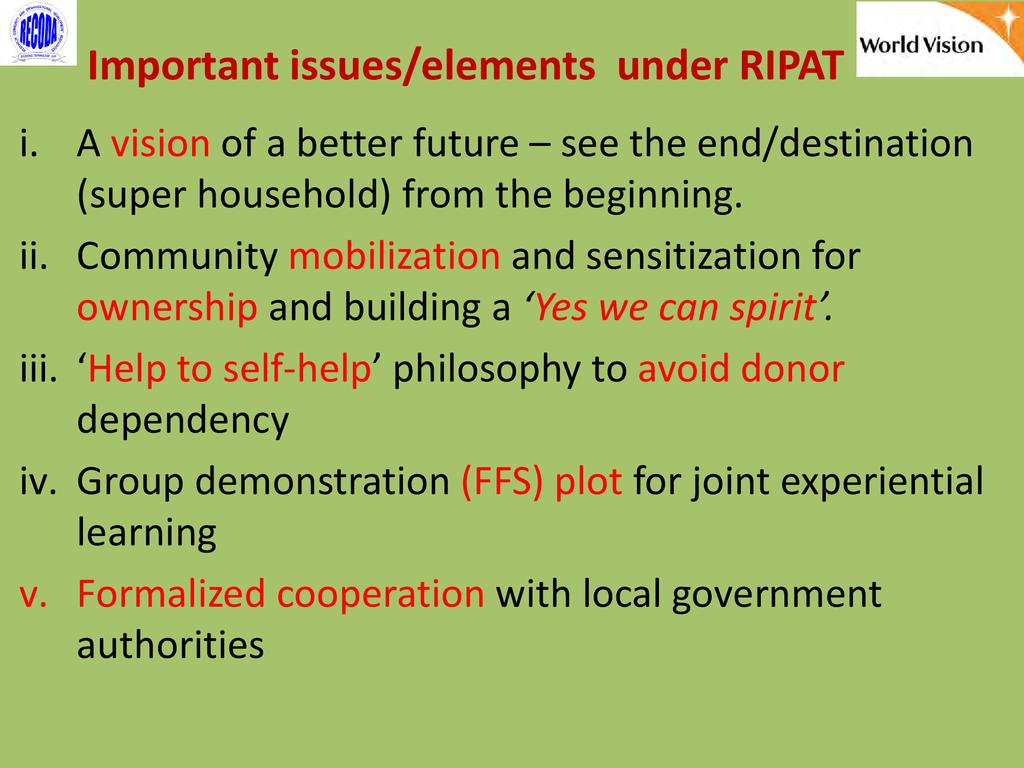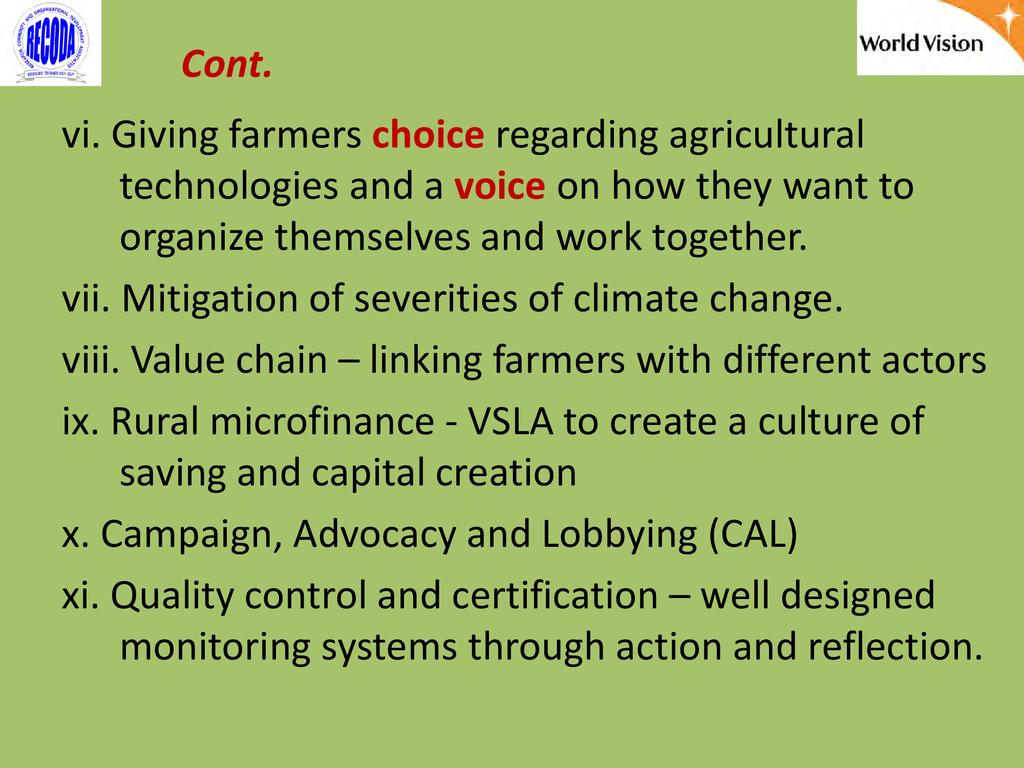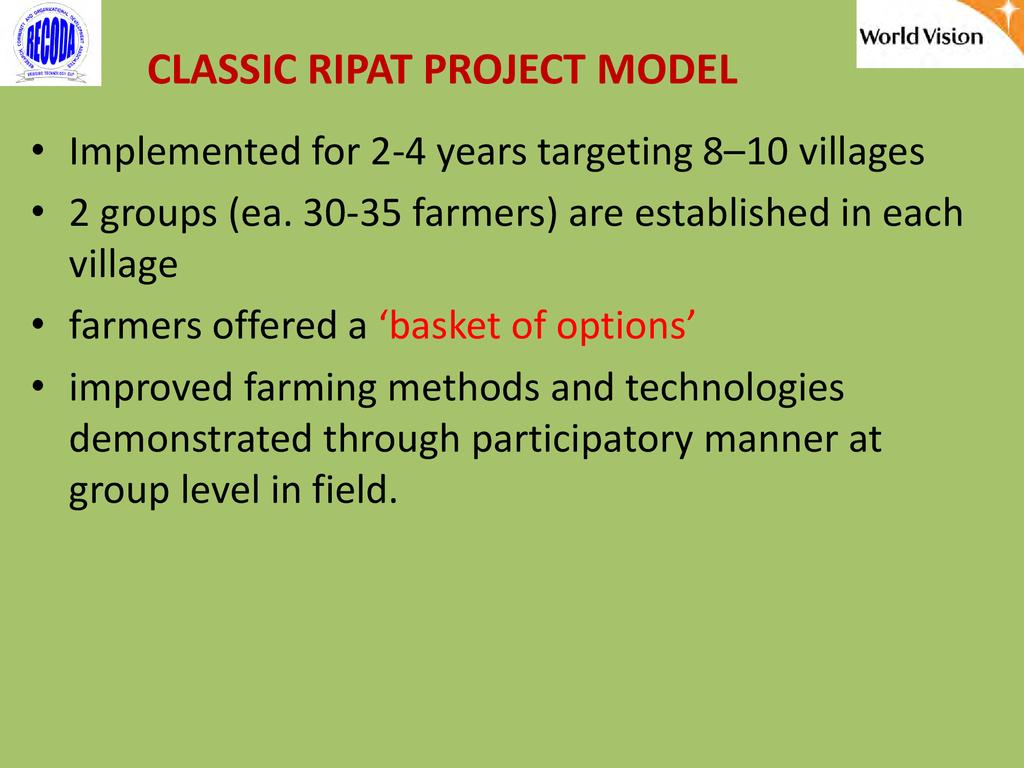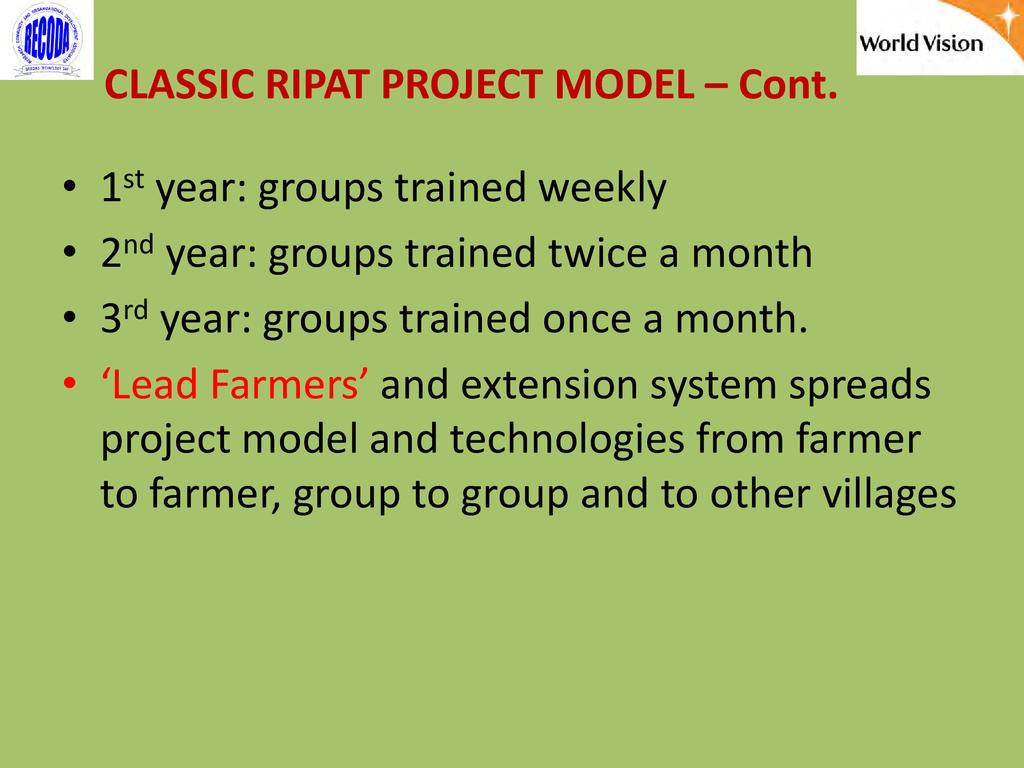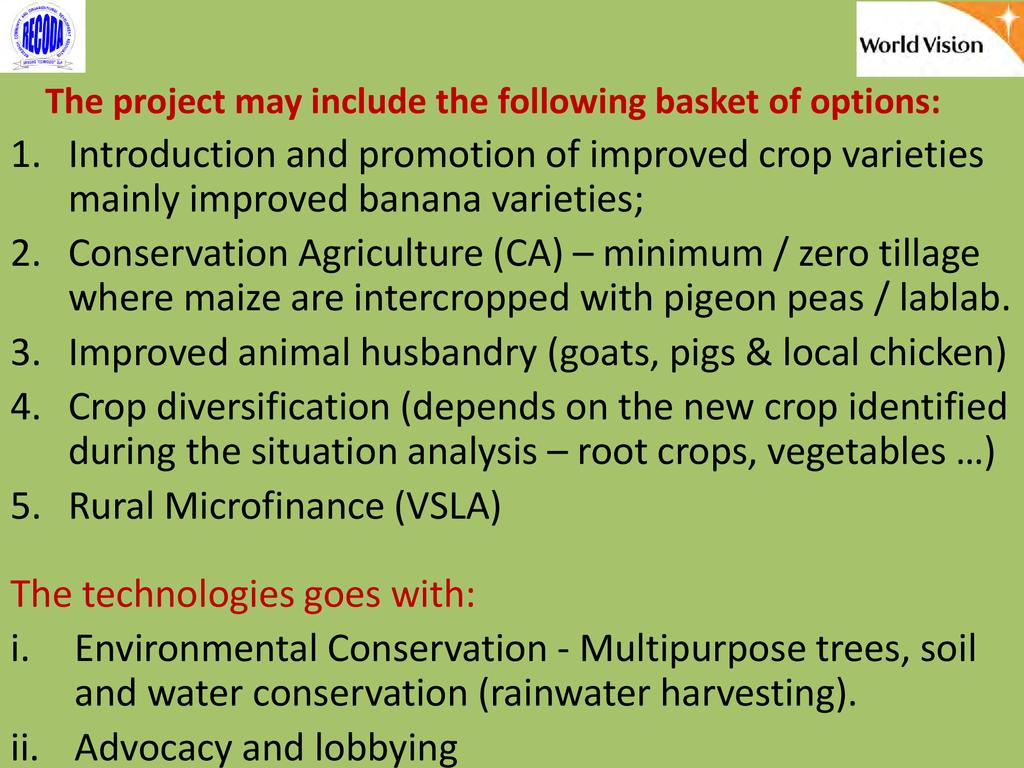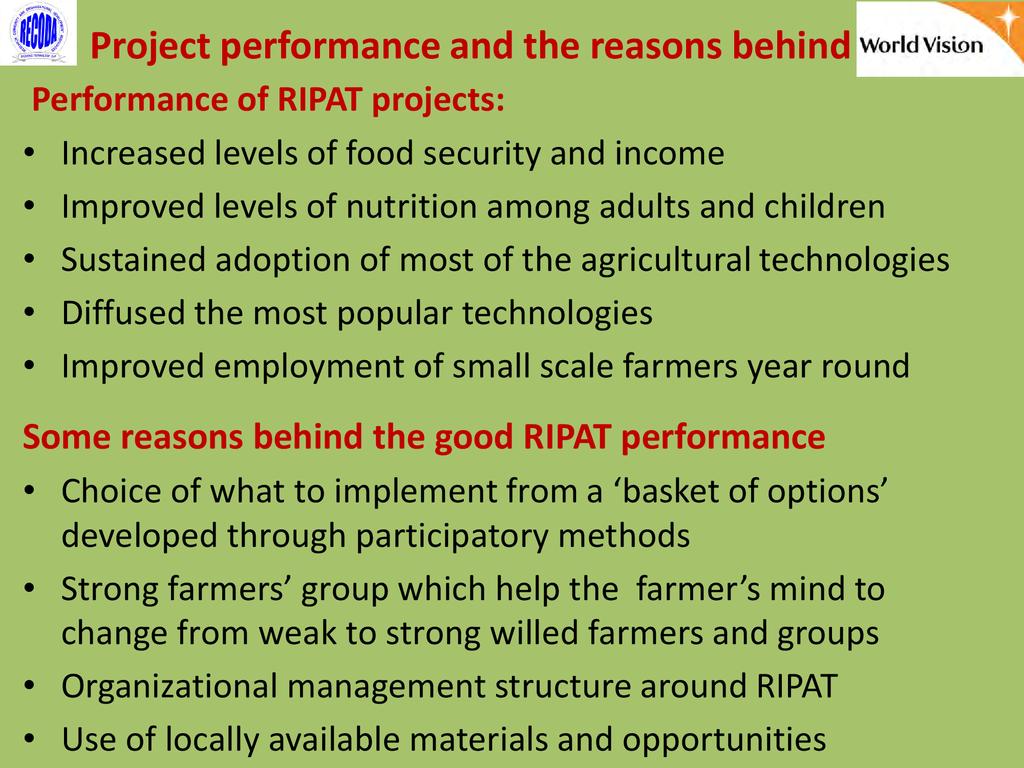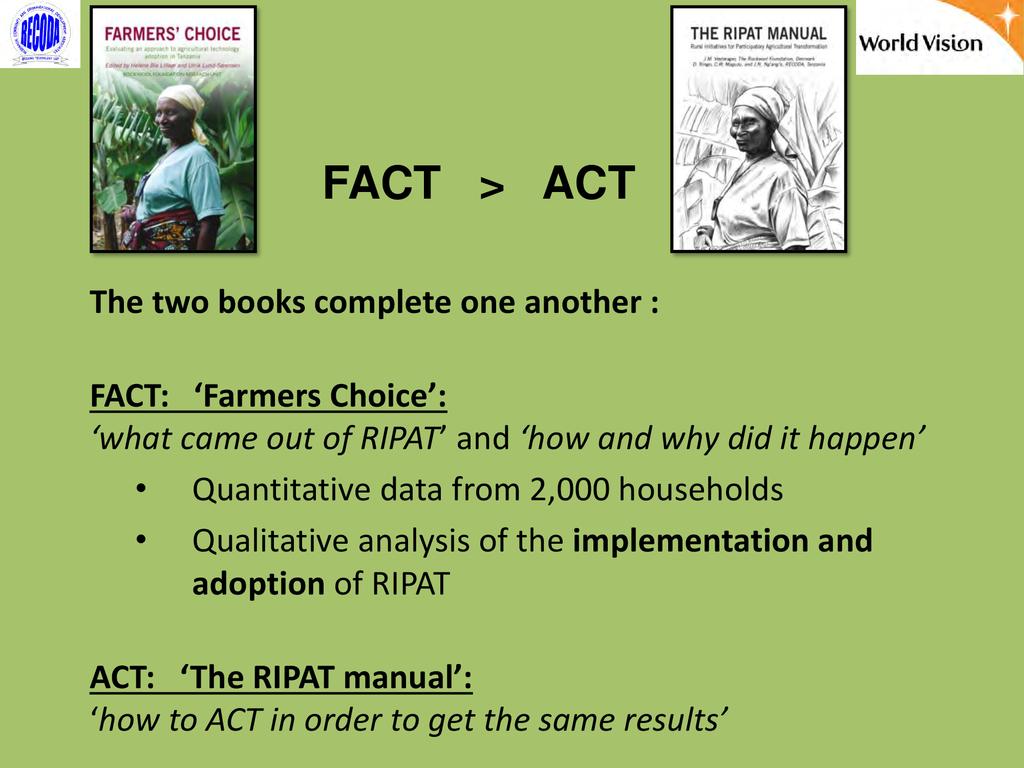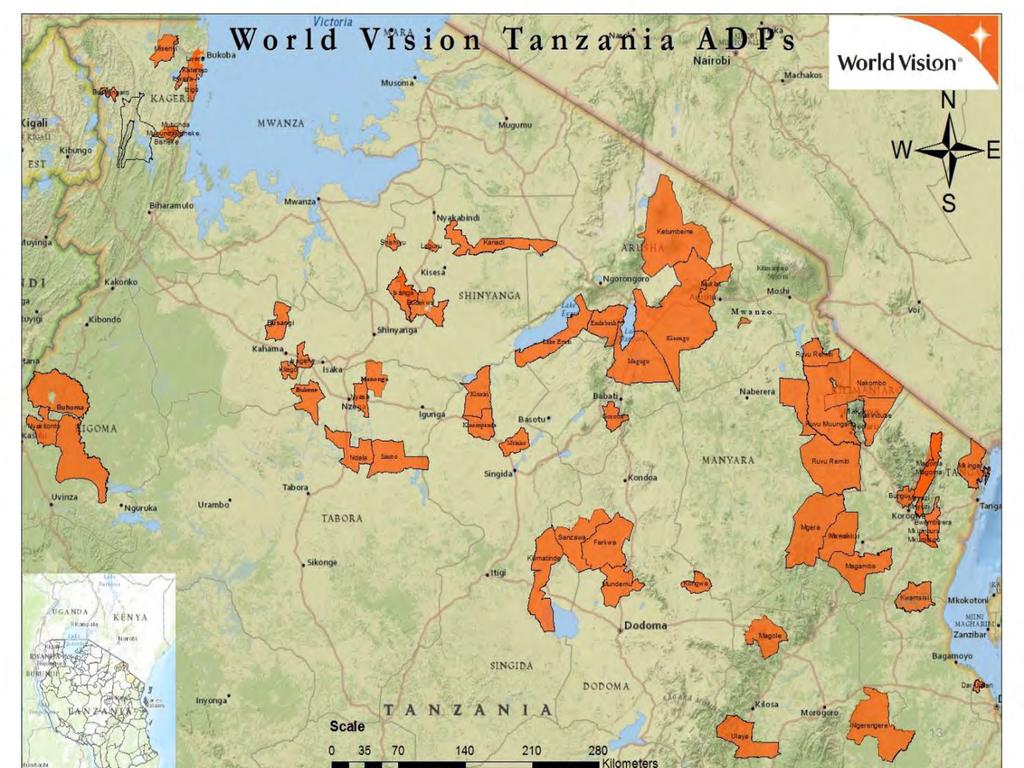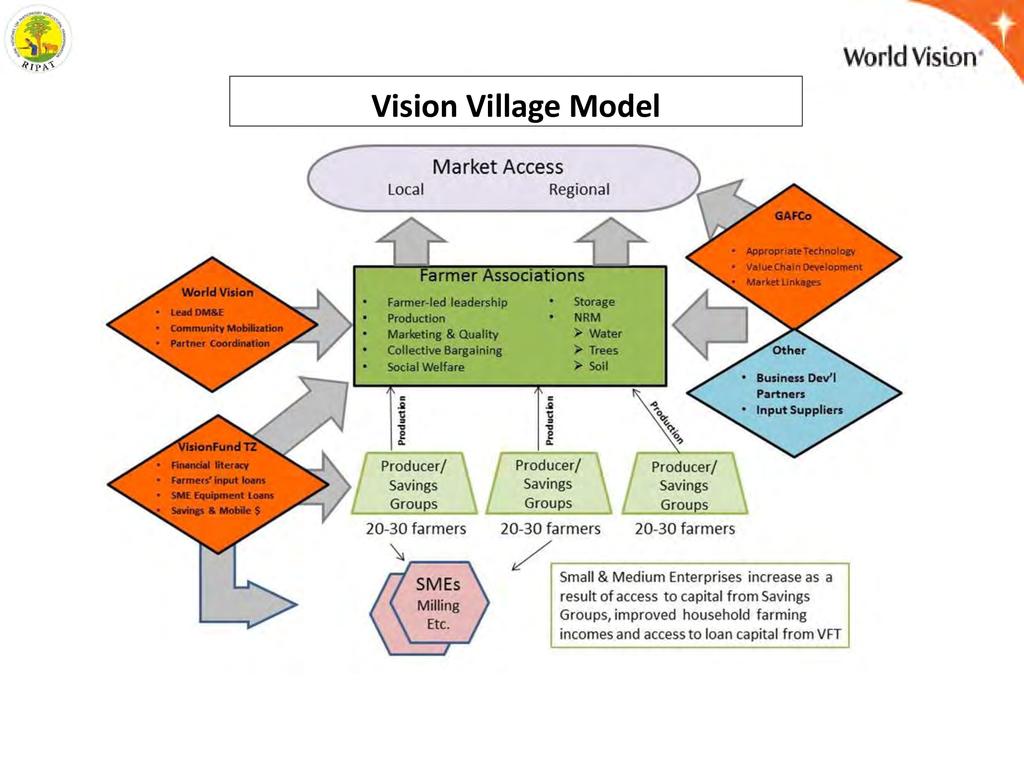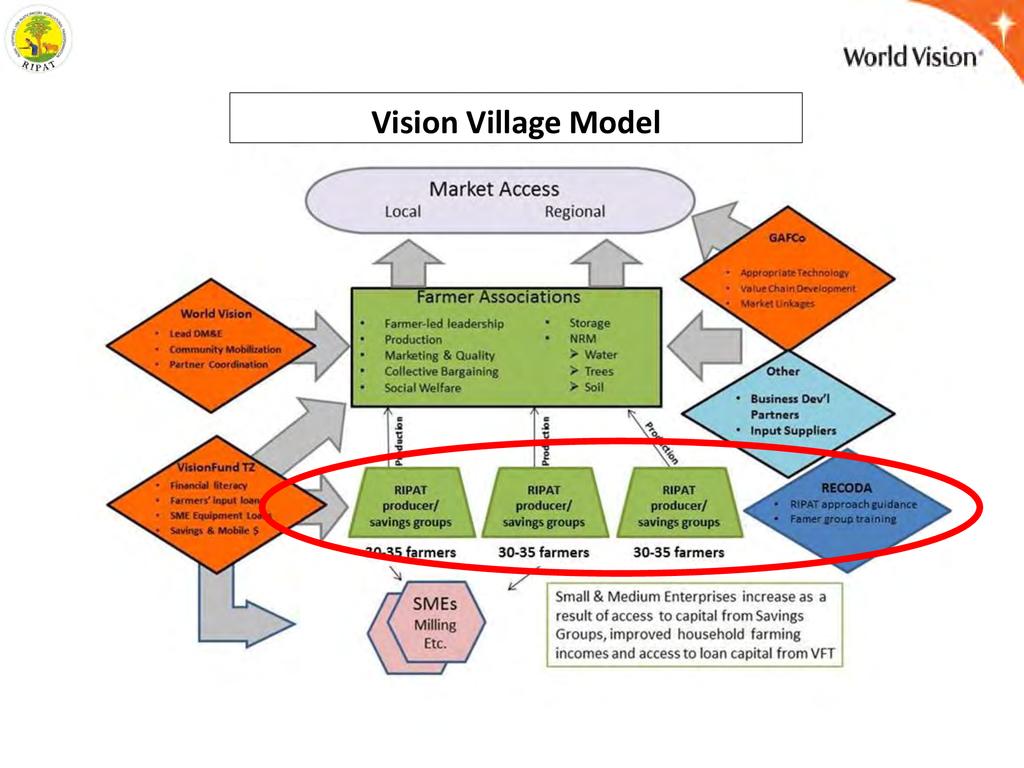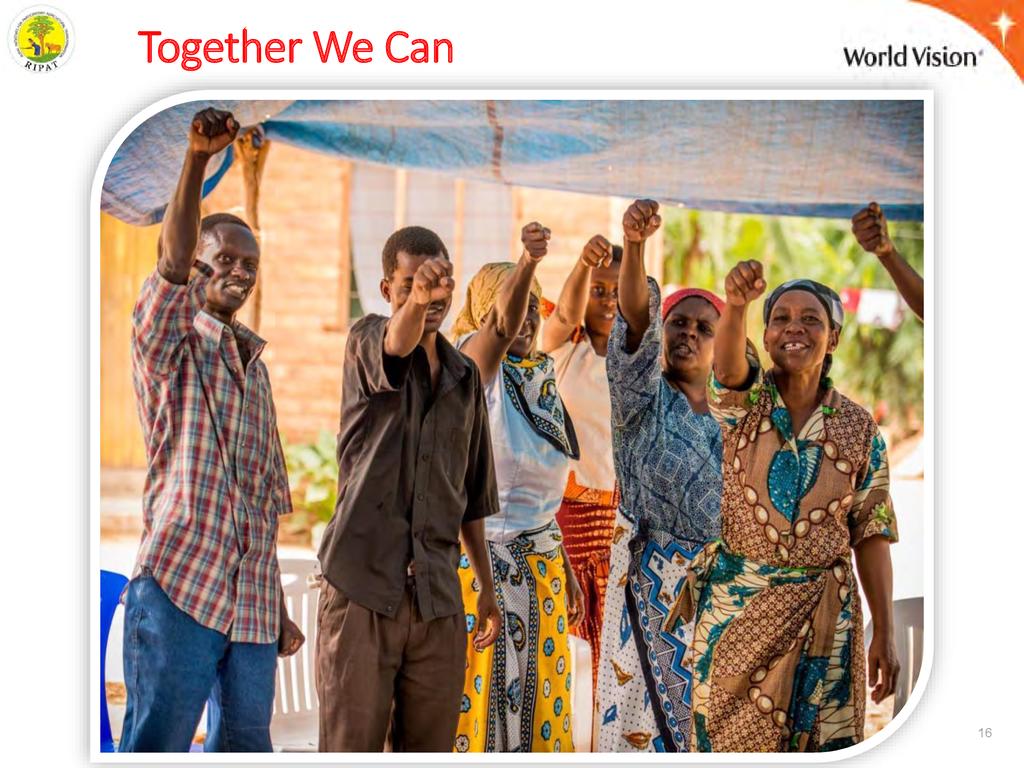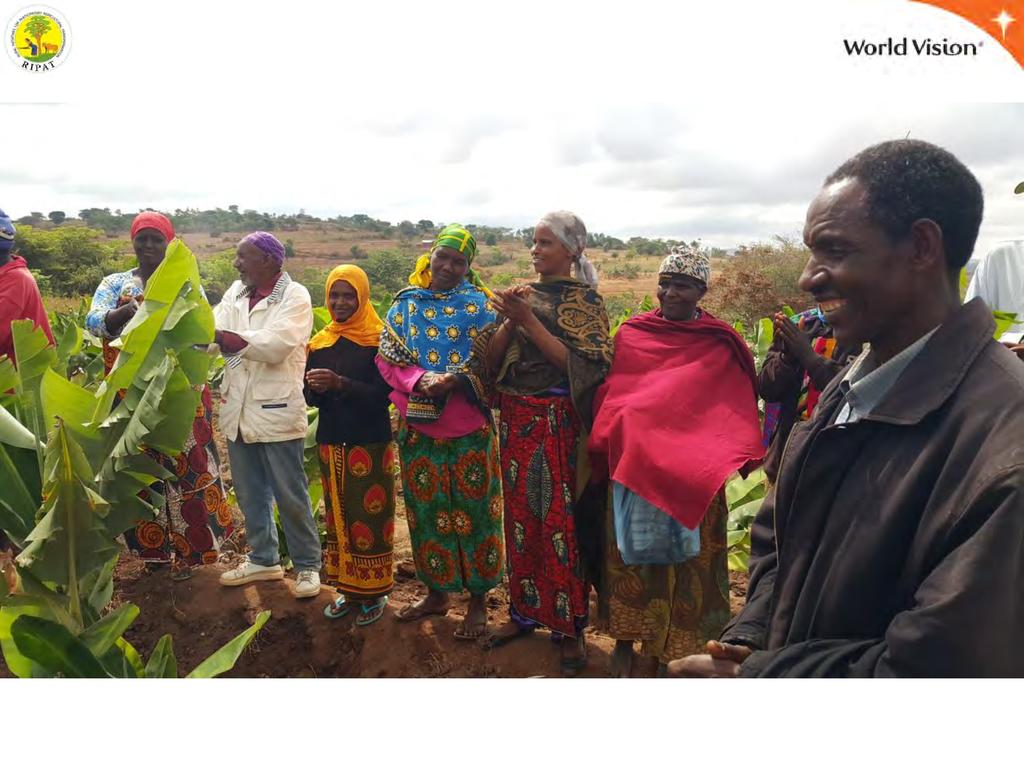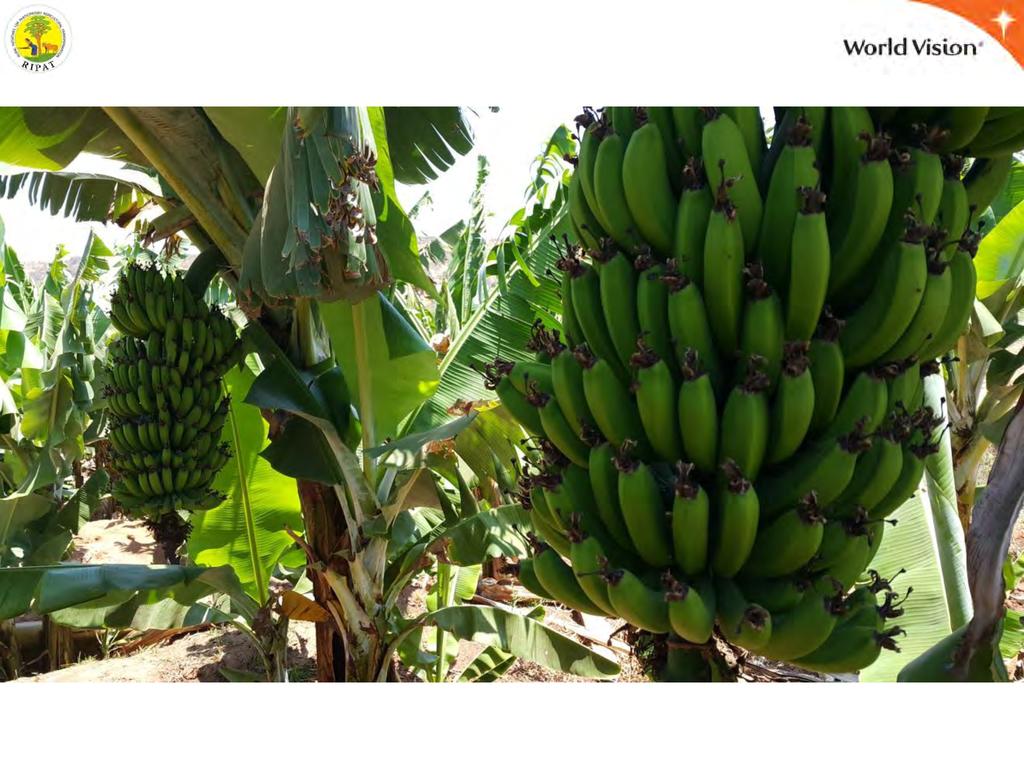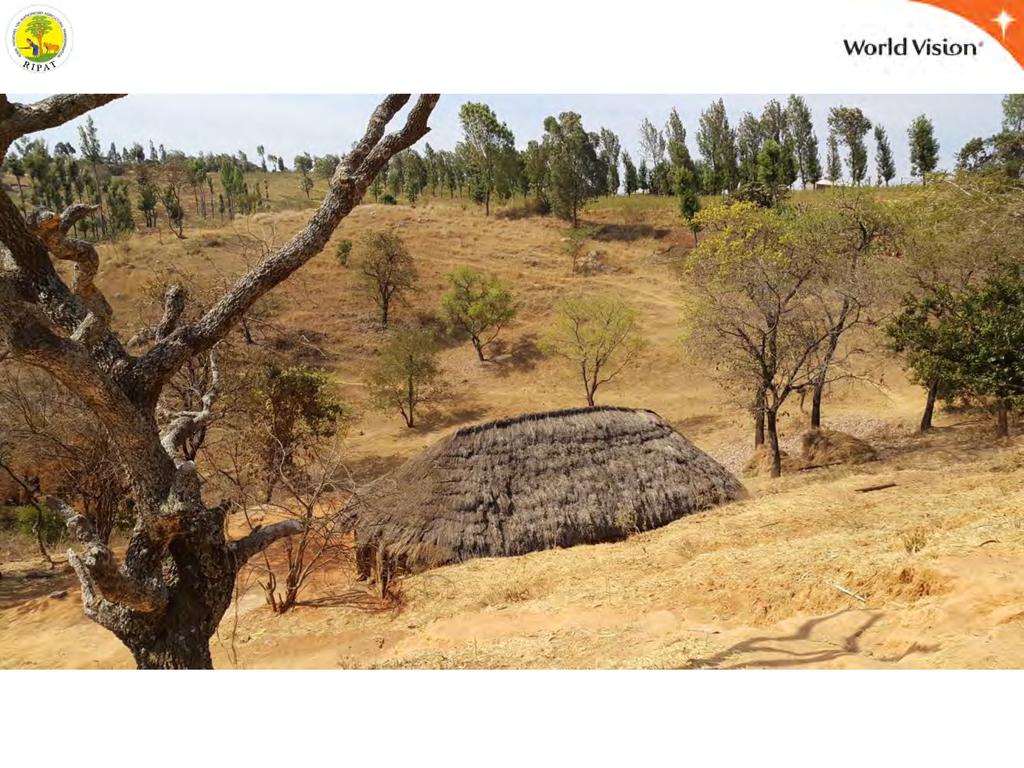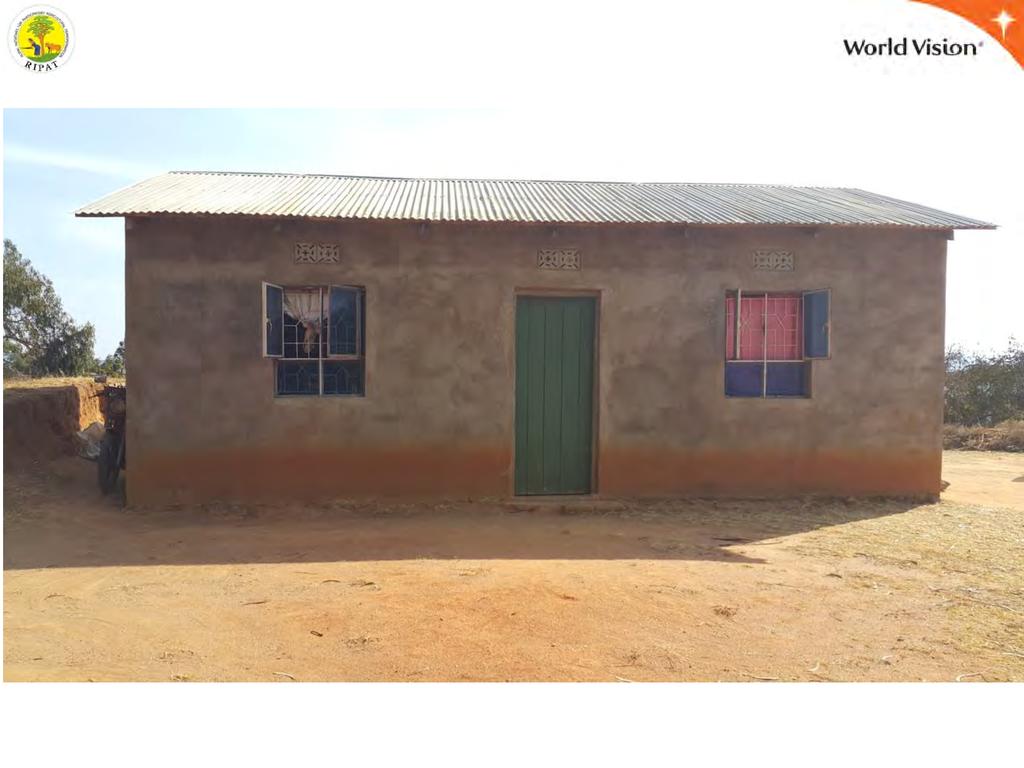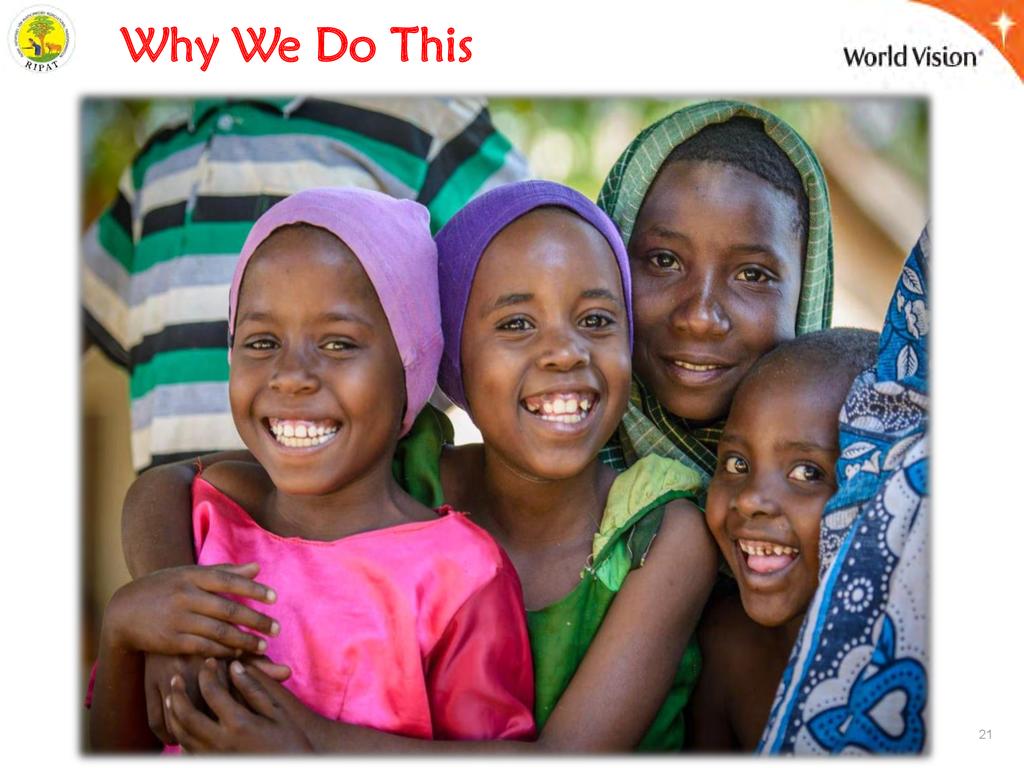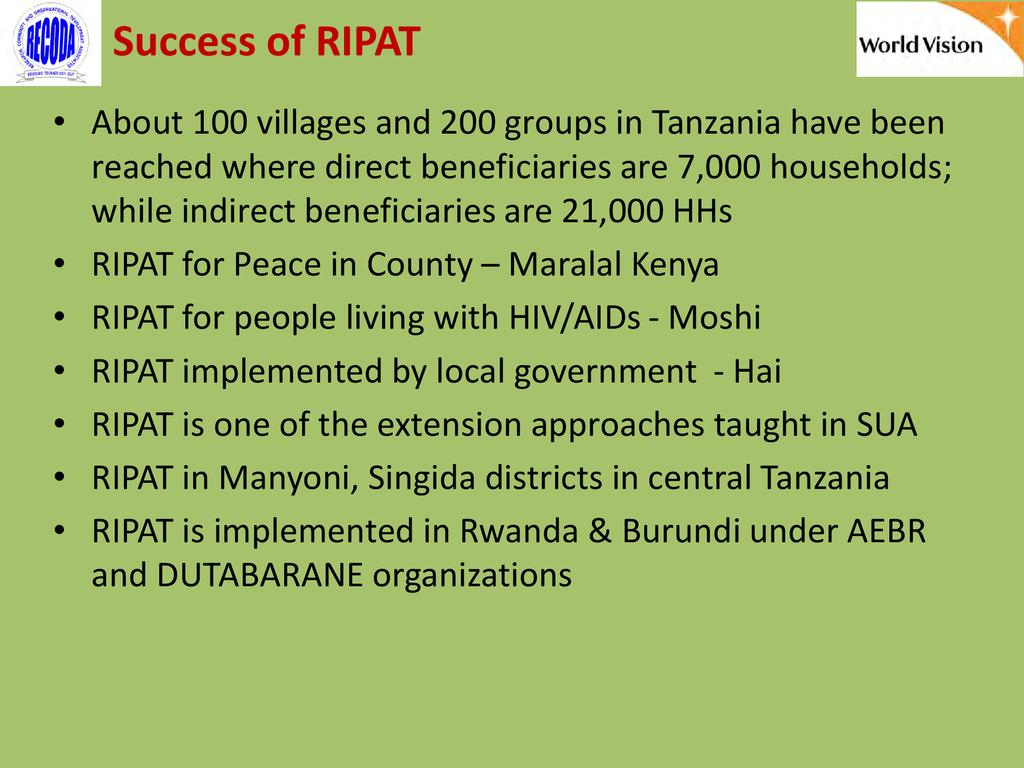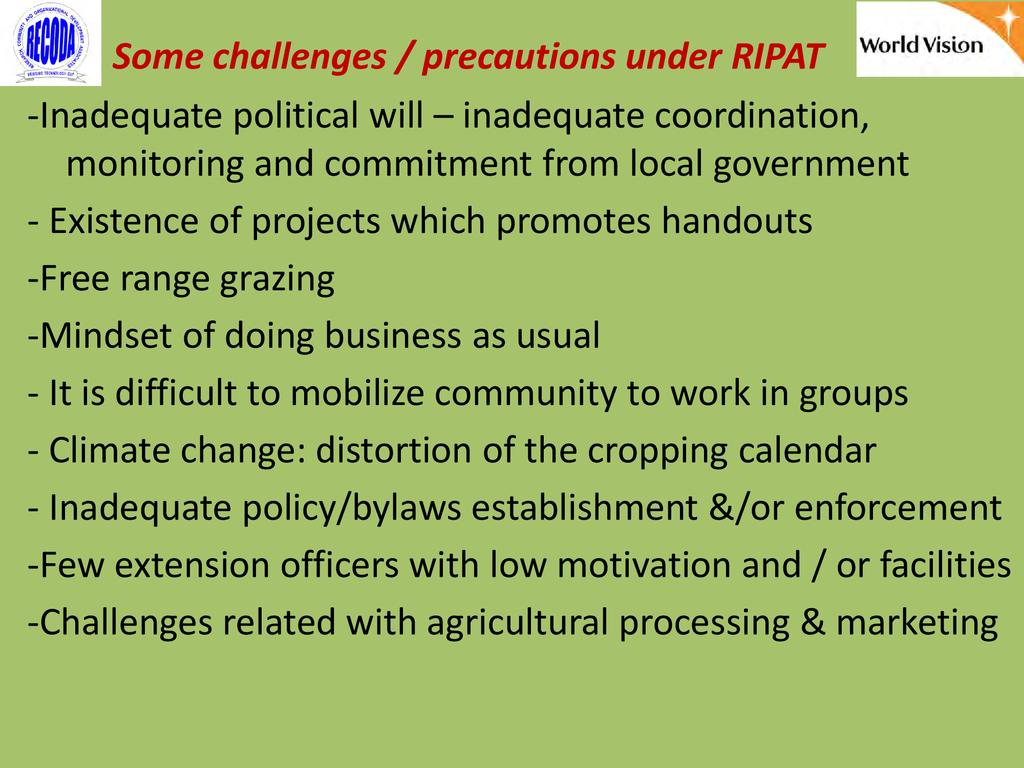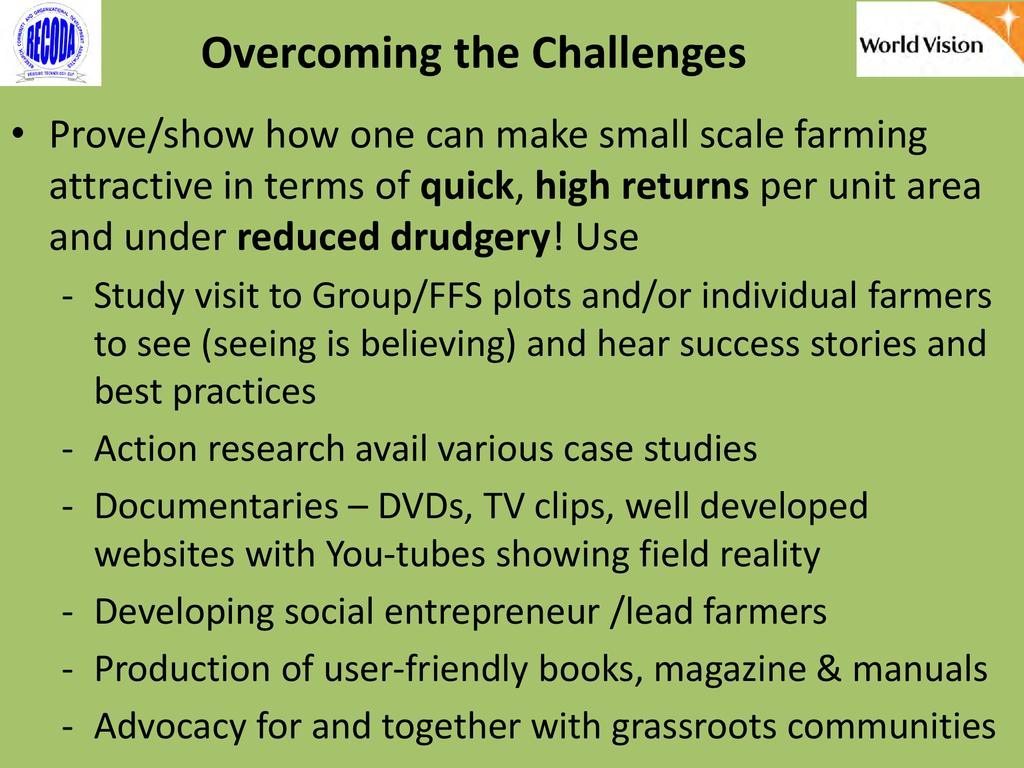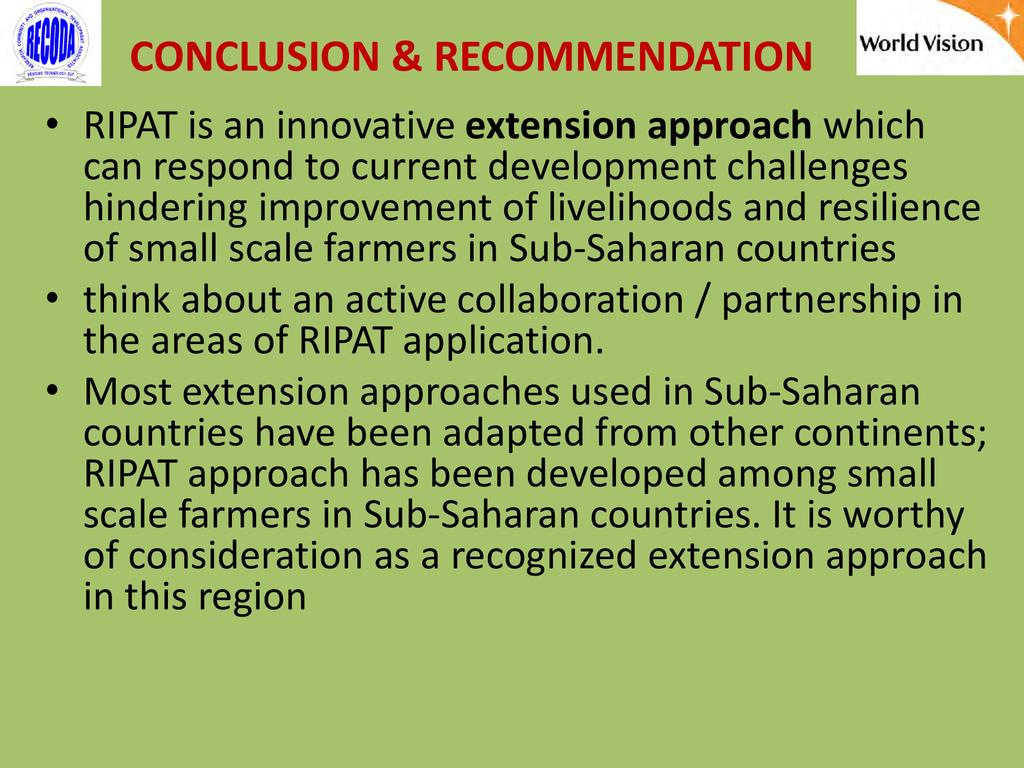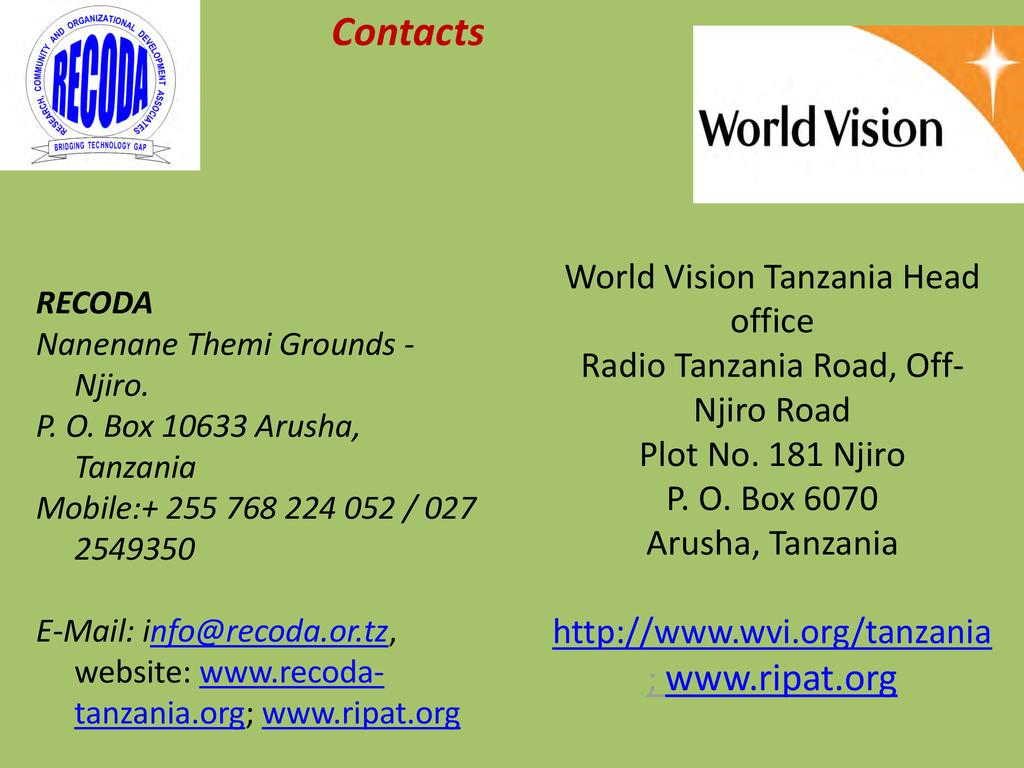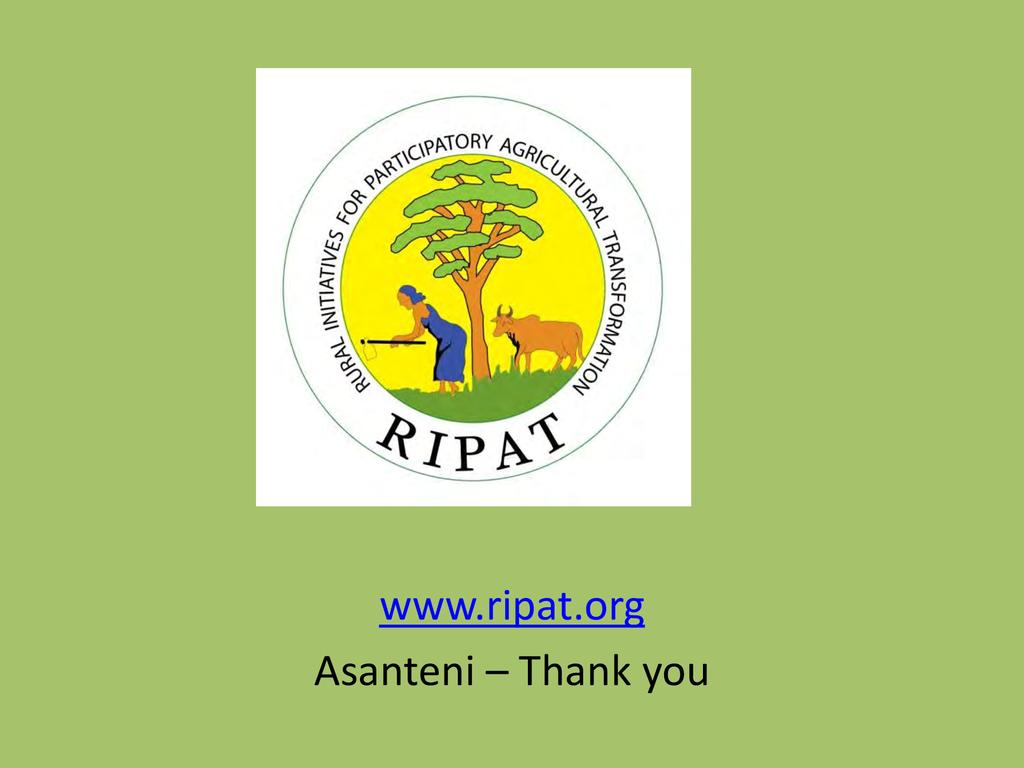Presented By: Dominic Ringo, RECODA Tanzania
Event: ECHO East Africa 4th Biennial Symposium on Sustainable Agriculture Best Practices (2017-02-09)
RIPAT (Rural Initiatives for Participatory Agricultural Transformation) is a participatory extension approach aims to close the agricultural technology gap as a means of improving livelihoods and self-support among rural small-scale farmers. The approach is as well a documented step-by-step guide on how organizations working with small-scale farmers can transfer various technologies aiming at improving the food and nutrition security and income of poor small scale farmers in the Global South. The approach provide solutions to why so many agricultural development projects have generated so little impact among rural farmers, and why so many improved agricultural technologies are developed – but not adopted by small scale farmers. The RIPAT was developed by RECODA in cooperation with the Rockwool Foundation (RF) and that process was funded by the RF; but of recently (2017), World Vision Tanzania (WVT) and RECODA have co-owned RIPAT – hence this is a joint presentation.
Presenter : Dominick Ringo is the Executive Director of RECODA, where he has worked for 14 years. Formerly, he worked under the Ministry of Agriculture in Tanzania as a research officer in the Soil Science Department at Uyole (Southern Highland zone) and then Selian (Northern zone) Agricultural Research Institutes. At RECODA, he has worked as a consultant in agricultural project design, implementation, and evaluation; in organizational capacity building; in policy analysis; and in advocacy. He has contributed to design RIPAT approach and supervises its implementation and is a co- author of RIPAT manual. He authored a case study publication entitled Conservation agriculture as practised in Tanzania: Karatu district in 2007, and was a contributor to the book Conservation agriculture: A manual for farmers and extension workers in Africa.

